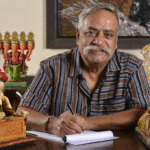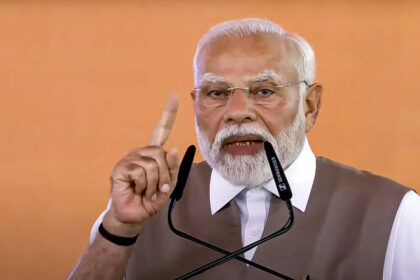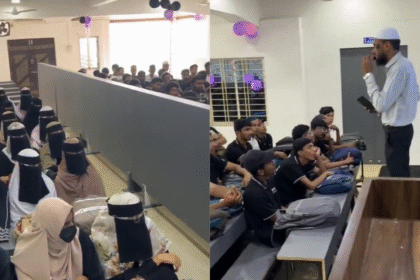Satara Doctor’s Suicide Note Reveals 5 Explosive Allegations Against MP — Rape, Harassment, and Threats
A 4-page suicide note by a Satara doctor accuses an MP of rape, harassment, and threats, revealing shocking new details in the tragic case
On the night of October 23-24, 2025, a 26-year-old woman doctor posted at the rural sub-district hospital in Phaltan (Satara district, Maharashtra) died by suicide. In the days since, her death has become the center of a storm of allegations — accusing police officers and political pressure of sexual assault, fake medical certificates and mental harassment.
The doctor, who had been in service about 23-24 months, left behind a 4-page suicide note and on her left palm had written critical allegations alleging multiple rapes by a sub-inspector, sustained harassment by others, and pressure to issue false reports.
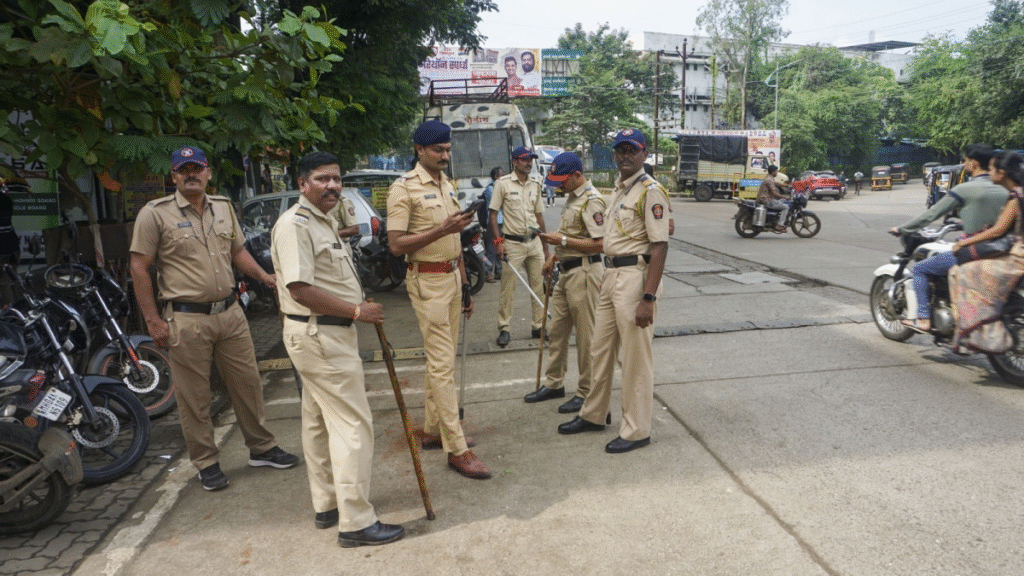
According to multiple media sources, these are the key allegations she made in her note and elsewhere:
The doctor wrote in her note that she had been raped four times by Gopal Badane, a Sub-Inspector of Police in the Phaltan police station area, over the past five months.
In addition, she named another person, Prashant Bankar (son of the landlord of her rented house) and accused him of repeated mental harassment and sexual assault (in some versions “assault”, in others “harassment”).
The suicide note also claimed that she was being pressured — by the police and in one case by a Parliament of India member (MP) and his two personal assistants — to issue fitness certificates or “medically fit” certificates for accused persons in police cases, even when they weren’t admitted, or proper medical examination had not been done. When she refused, she alleged harassment.
She also flagged the lack of institutional support and safety. Her letter reportedly asked “if anything happens to me who will be responsible?” and described fear and pressure.
Her cousin corroborated that she had lodged complaints previously (to higher police officials) about harassment and pressure. But according to family statements, no effective action was taken.
The doctor, originally from Beed district, was posted at a government-run hospital in Phaltan. She had around one month remaining in her rural-service bond before she intended to pursue a post-graduate degree.
On the night of the incident, she was found hanging in a hotel room in Phaltan. The police investigation was first going through standard procedures (body sent for post-mortem, suicide note and suicide on palm analysed).
As investigations progressed, the allegations of rape/harassment and the issue of fake medical certificates emerged. The local police have registered cases under Sections of rape and abetment to suicide.
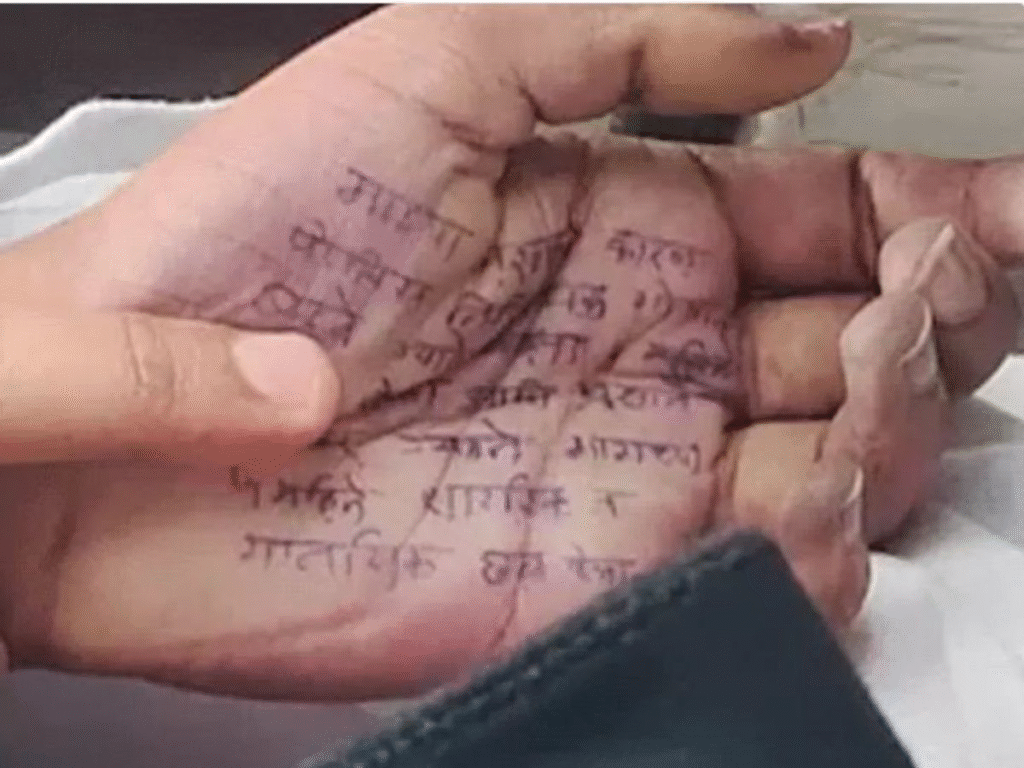
The accused sub-inspector has been suspended. Teams have been formed to trace him and the other accused.
It involves a woman doctor — a public-servant working in rural Maharashtra — who trusted the system to protect her but alleges the opposite.
The involvement of police officers, who are meant to be protectors of public safety, raises very serious concerns about abuse of power.
The allegations include fake medical certificates and political pressure, suggesting possible collusion or misuse of the health-system and criminal justice system.
The note being written on her palm, and the detailed four-page letter, contribute to the sense of desperation and helplessness.
The fact that she claimed to have complained earlier, yet no corrective action was taken, points to potential systemic failure.
It ignites debates on workplace safety, particularly for women in public service in remote/rural postings, on sexual harassment, mental-health and institutional accountability.
The local police say a case has been registered against the officer and the other accused. The Sub-Inspector named has been suspended.
The Maharashtra State Commission for Women has taken cognisance of the matter and directed the Satara police to take prompt, strict action.

Political reaction: The opposition has accused the state government of shielding the police and failing to protect women.
From the doctor’s side, family and colleagues say she had raised concerns previously, but no meaningful redress was given.
Accountability: Why did previous complaints allegedly not lead to action? Who is accountable when a protected-system failure leads to such a tragedy?
Systemic Safeguards: What safeguards exist for women doctors (and women public servants) who face harassment, especially in remote/rural postings?
Intersection of Power Structures: The case alleges improper influence from police + political figures + misuse of the medical system. How are these power structures being checked?
Medical Ethics & Safety: Being pressured to issue fake fitness certificates undermines medical ethics and endangers innocent persons and institutional integrity.
Mental Health & Suicide Prevention: The fact that the victim left a note and yet apparently did not feel safe to continue working raises questions about mental health support for frontline public service workers.
Transparency & Investigation: Will the investigation be impartial? Will the system deliver justice and rule of law?
For the healthcare system: Frontline doctors, especially in rural/remote areas, often face high stress, limited support, and exposure to harassment or over-reach from local power players. This tragic event underscores the urgent need to strengthen protections.
For law enforcement & policing: The alleged involvement of police officers in sexual assault and coercion of a doctor severely undermines public trust in the police. This requires independent oversight and swift justice.
For governance & politics: The mention of a Member of Parliament and their assistants (in one account) in the doctor’s letter indicates how political power may play a role in suppressing complaints. That widens the scope beyond just the actors named.
For women in public service: The incident emphasises that gender-based harassment, especially from those in authority, must be confronted as a matter of policy, not just individual wrongdoing.
For societal awareness: The story is shocking and draws attention, but such incidents might be the tip of a larger iceberg of unreported abuse of power, sexual harassment and coerced complicity in public service.
Immediate arrest and prosecution of the accused officers and other individuals named in the doctor’s letter.
A thorough, impartial investigation (preferably by an independent body) of all allegations made in the suicide note — rape, fake certificates, political pressure.
Ensuring protection & support for the family of the victim and any witnesses. Also, protection for public-servants who lodge complaints.
Institutionalisation of mechanisms so that complaints of sexual harassment, coercion and mental harassment — especially in rural public-service postings — are taken seriously, investigated swiftly and effectively.
Establishing mental-health support and security for women doctors working in rural hospitals: safe housing, security personnel, independent complaint cells, regular check-ins.
Transparent audit of the medical-certification process in police-cases — to check how many “fitness certificates” or “medically fit” reports were issued without proper examination, as the doctor alleged.
Political will and visible accountability, so that the message goes out: no one is above the law, even police or political functionaries.
What makes this case particularly tragic is the combination of elements: a young doctor with ambition and service to society; a remote posting which should reflect dedication; and yet she faced alleged repeated trauma, abuse of power and felt cornered to the point of taking her own life. The suicide note — written on her palm and running four pages — and the fact that the allegations implicate not just individuals but structural failure make this more than a singular incident.
If justice is to mean more than words, this case must be treated not as an isolated horror, but as a wake-up call to Garda the vulnerable in our public systems and to ensure that power — be it police, political or administrative — is never misused to prey on the weak. The doctor’s voice must not be silenced by apathy or institutional inertia.
As this story unfolds, the public, the government, and the medical community will be watching whether accountability is delivered — and whether this tragedy catalyses reform, or becomes yet another forgotten headline.
Read Also : Piyush Pandey Dies at 70, Leaves Behind Advertising Empire



